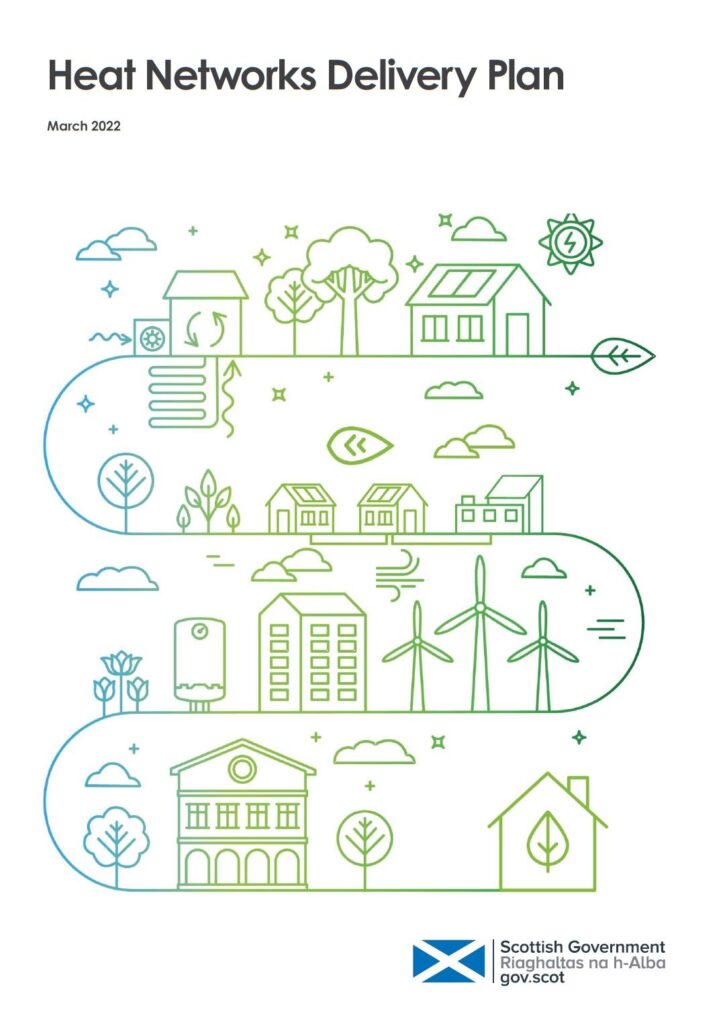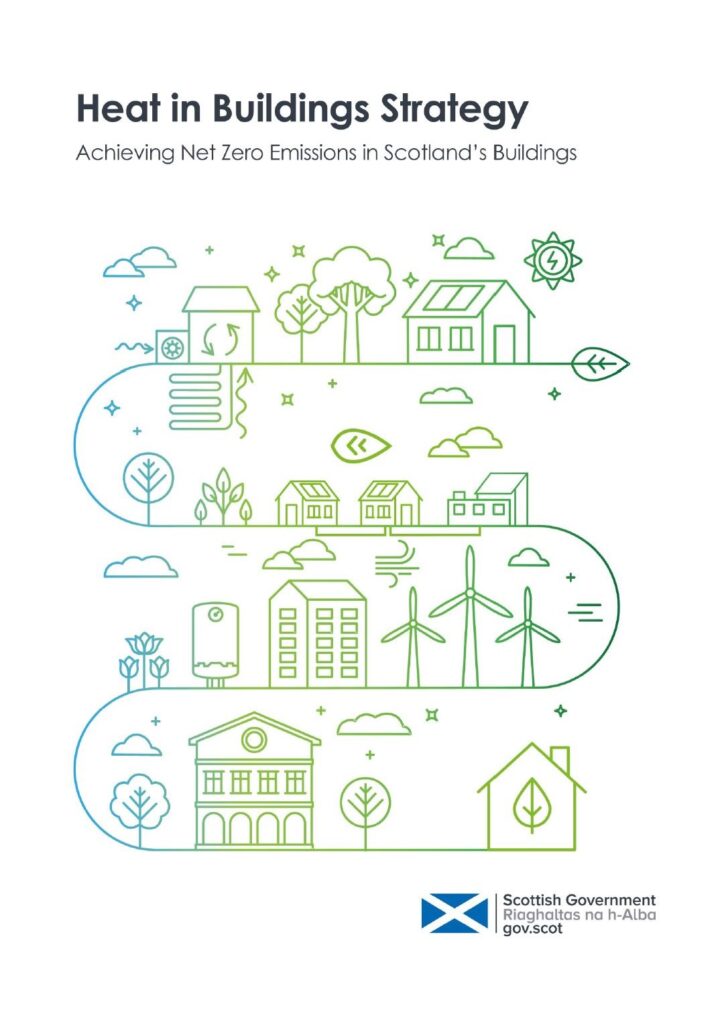One of the biggest challenges Scotland faces in tackling climate change is decarbonising our homes and buildings. To meet our target of 75% emissions reductions by 2030, over 1 million homes and the equivalent of 50,000 non-domestic buildings need to be converted to use zero emission heating systems. The Scottish Government’s Heat in Buildings Strategy identified heat networks as a key strategic technology for meeting this goal. The Heat Networks (Scotland) Act 2021 sets targets that the combined supply of thermal energy should reach at least 2.6 Terawatt hours (TWh) of output by 2027 and 6 TWh of output by 2030. These targets are equivalent to 3% and 8% respectively of current non- electrical heat consumption.
The Scottish Government is working to create the conditions in Scotland for accelerated heat network development through primary legislation, capital funding and heat network designation guidance. This was outlined in the Heat Networks Delivery Plan, published in March 2022. The Plan outlines how the provisions of the 2021 Act, and any other supporting policies, will contribute to increasing the use of heat networks in Scotland and meeting the statutory targets. In addition, it outlines how progress will be measured and the expected contribution that heat networks will make toward meeting the emission reduction targets.

Scottish Government are working to deliver the necessary heat network regulations. The powers for zoning and building assessment reports came into force on 30 May 2023. For parts of the regulatory regime not yet in force, Scottish Government will consult on these in due course whilst taking into account the UK Government plans to regulate in the same area.
The requirement for non-domestic buildings to produce a building assessment report – to assess whether the building could connect to a heat network – is currently limited to buildings owned by Scottish public authorities. The 2021 Act provides powers to extend the requirement to commercial buildings, as well as the public sector. Given that commercial premises comprise the majority of non-domestic buildings, Scottish Government will set out timescales for extending the requirement in due course.
LHEES
Local Heat and Energy Efficiency Strategies (LHEES) are long-term plans for an entire local authority area to decarbonise heat and improve energy efficiency. A key part of the development of an LHEES is a review of areas that are particularly suitable for the development of a heat network. Local authorities must publish their first LHEES by the end of 2023 and then update them every five years. The Scottish Government has provided local authorities with long term funding of £2.4 million per annum to support the development and delivery of their LHEES. The outputs from producing an LHEES can be used as the basis for more detailed work to deliver heat networks and will be used to inform designation of heat networks zones.
Funding
The Scottish Government offers pre-capital and capital grant funding to support heat network projects. The £300 million Scotland’s Heat Network Fund enables and supports the development of new, and expansion of existing, heat networks in Scotland. Grant funding towards feasibility studies and Outline Business Cases, along with access to technical, financial and legal advisors, is available through the Heat Network Support Unit. In addition, the Heat Network Support Unit offer Strategic Heat Network Support for Local Authorities. Please see the Project Development Funding and Strategic Heat Network Support pages for more information.
UK Regulations
Existing UK regulations require eligible heat network operators to take a number of actions. These regulations include the Heat Network Metering and Billing Regulations and the Energy Bills Discount Scheme Pass-through Requirement (Heat Suppliers) Regulations. The Energy Act 2023 includes introductory powers to develop regulatory protections for heat network consumers.
More information on the Scottish Government’s plans can be found on their website: Heat networks – Renewable and low carbon energy – gov.scot (www.gov.scot)
